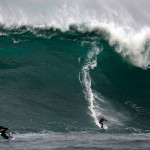The Mineral Management Service under the Bush Administration is running wild on the PR campaign about the benefits of deep-sea oil platforms. Thanks to Scientific American and Reuters the MMS and big oil are getting some good press.
Deep-sea oil platforms may aid sea life: study HOUSTON (Reuters) – Deep-water oil and natural gas platforms may become be as beneficial as a federal study has shown shipwrecks to be in creating habitats for undersea plants and animals, the U.S. Minerals Management Service said on Thursday. “The biological analyses conducted during this investigation concluded that as petroleum exploration and production expands into deeper Gulf water, platforms could potentially provide a habitat for marine life,” Lars Herbst, acting MMS Gulf region director, said in a statement. Since offshore drilling began in the Gulf of Mexico after World War II, exploration has moved farther south from the U.S. coastline and into sea depths of thousands of feet.
Note the phrasing here could potentially provide a habitat for marine life. A debate ensued when artificial reefs became an excuse to litter the ocean with litter. Do artificial reefs increase fish prodution (i.e. increases in birth and/or growth rate) or do they merely concentrate available biomass (i.e pull individuals from other areas)? Largely the consensus has been that the latter, concentrating available biomass so it is not likely oil rigs are going to be a benefit to marine ecoystems.
Rapid colonization, high fish densities, and high catch rates at artificial reefs have been used as evidence for habitat-limitation and increased production of reef fishes. An alternative hypothesis is that artificial reefs attract fishes due to behavioral preferences but do not increase reef fish production or abundance. Reviewed literature reveals that except in one case evidence for increased production is mostly anecdotal and inadequate.
the literature contained few studies that unambiguously demonstrated that artificial reefs increased regional fish production rather than merely concentrated available biomass





